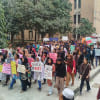Tofazzal’s murder at DU: Were unseen political forces at play?

The horrific murder on the Dhaka University campus a few weeks ago still haunts me, and I'm sure I am not the only one. I was a part of this university for four decades, and anything that happens here touches me in a way few things do.
As I read personal text messages, social media posts, and watched news and videos of the student movement with immense pride from thousands of miles away, I was completely mortified by the brutal killing of 35-year-old Tofazzal by a group of students in the guest room of Fazlul Haque Hall.
For more than four hours, they beat him, fed him dinner, gave him hope that he would live to see another day, then beat him again. From 6:30pm until almost midnight, the mentally-challenged man, ostensibly accused of stealing a mobile phone, was tortured and beaten, and no one said a word. Although the hall provost has been removed, the house tutors, who are surely culpable, remain unreprimanded.
The murder immediately reminded me—and many others, I'm sure—of the killing of Abrar Fahad in BUET a few years back. These were practised killers, I thought. We now know that five of the six killers who were arrested were AL members.
I find it hard to believe that this was an isolated, random, wanton act of brutality, in the heart of the city, and on the premises of the nation's highest seat of learning. Now, I strongly suspect it was not. These were hired murderers, sent to kill a student—any student—or, if a student could not be found, any random individual, to strike terror into the heart of a nation struggling to renew itself.
The police now know, as do we, that the killers are Chhatra League members. The police might also know how much they were paid to commit this monstrous act with such insouciance. Someone must have paid the killers, even if the orders came from afar.
I do not say these words irresponsibly. Anybody who has read the book written by Motiur Rahman Rentu, former private secretary of the former prime minister, would understand the modus operandi: when you are not in power, create as much trouble as you can so that you make it difficult, if not impossible, for the incumbent government to function.
Rentu's book covers the period from 1981 to 1997. During most of this time, Sheikh Hasina was not in power, except from 1996-2001. By then, seasoned in the art of realpolitik, she likely no longer needed Rentu's services for her dirty work. She fired him and declared him persona non grata, in the classic style of a dictator-in-the-making. It is not surprising that Rentu's book, Amar Fashi Chai, published in 2001, was immediately banned.
Let me give just one example from Rentu's book to explain what I mean by modus operandi. When the SAARC summit was scheduled to be held in Dhaka under Khaleda Zia's chairmanship in 1992, with the then Indian prime minister attending the inaugural ceremony, Rentu was instructed to orchestrate a riot—burn a few Hindu homes, kill a few people—and generally create mayhem. Cash was disbursed, a localised riot was organised just on the eve of the summit, Narasimha Rao cancelled his visit, and the summit was postponed.
When Sheikh Hasina came to power the second time in 2009, she ruled without interruption until August 2024. We all know how she did it—with support from sections of the army, police, RAB, thugs from Jubo League and Chhatra League, looters and plunderers masquerading as businessmen and politicians, sycophantic "intellectuals" and activists, and much more than can be written here.
Given what we know about her psychopathic nature, her limitless greed for power and money, it is not difficult to imagine that Hasina will continue to try to disrupt the efforts of the interim government to bring hope to the people of Bangladesh. The murder of Tofazzal is likely part of this vicious effort.
The murder, therefore, is not an isolated incident, but part of a concerted, multi-pronged strategy, with unrest among the Ansar members, restlessness of the garment workers, pandemonium in the Baitul Mukarram mosque, being just a few examples.
In addition, unimaginable amounts of money are available both within the country and outside to advance this strategy. The ousted prime minister, I believe, will try her best to use this money through her still-loyal underlings to foment trouble. They are everywhere—in the police, BGB, RAB, among businessmen turned MPs, whether hiding within the country or somewhere abroad, among university teachers, journalists, cultural personalities, and student killers in the universities.
We must be on guard, and try to find out the true motive behind the murder to uncover the real source of the evil. I have recently seen a photo of US President Biden hugging Dr Yunus and offering him full support on the sidelines of the UN General Assembly. I wish this support was extended to Gaza as well, but we cannot afford to look a gift horse in the mouth now. This gives us hope of a better Bangladesh, at least.
Shawkat Hussain is a former professor of English at Dhaka University.
Views expressed in this article are the author's own.
Follow The Daily Star Opinion on Facebook for the latest opinions, commentaries and analyses by experts and professionals. To contribute your article or letter to The Daily Star Opinion, see our guidelines for submission.

 For all latest news, follow The Daily Star's Google News channel.
For all latest news, follow The Daily Star's Google News channel. 








Comments